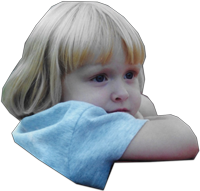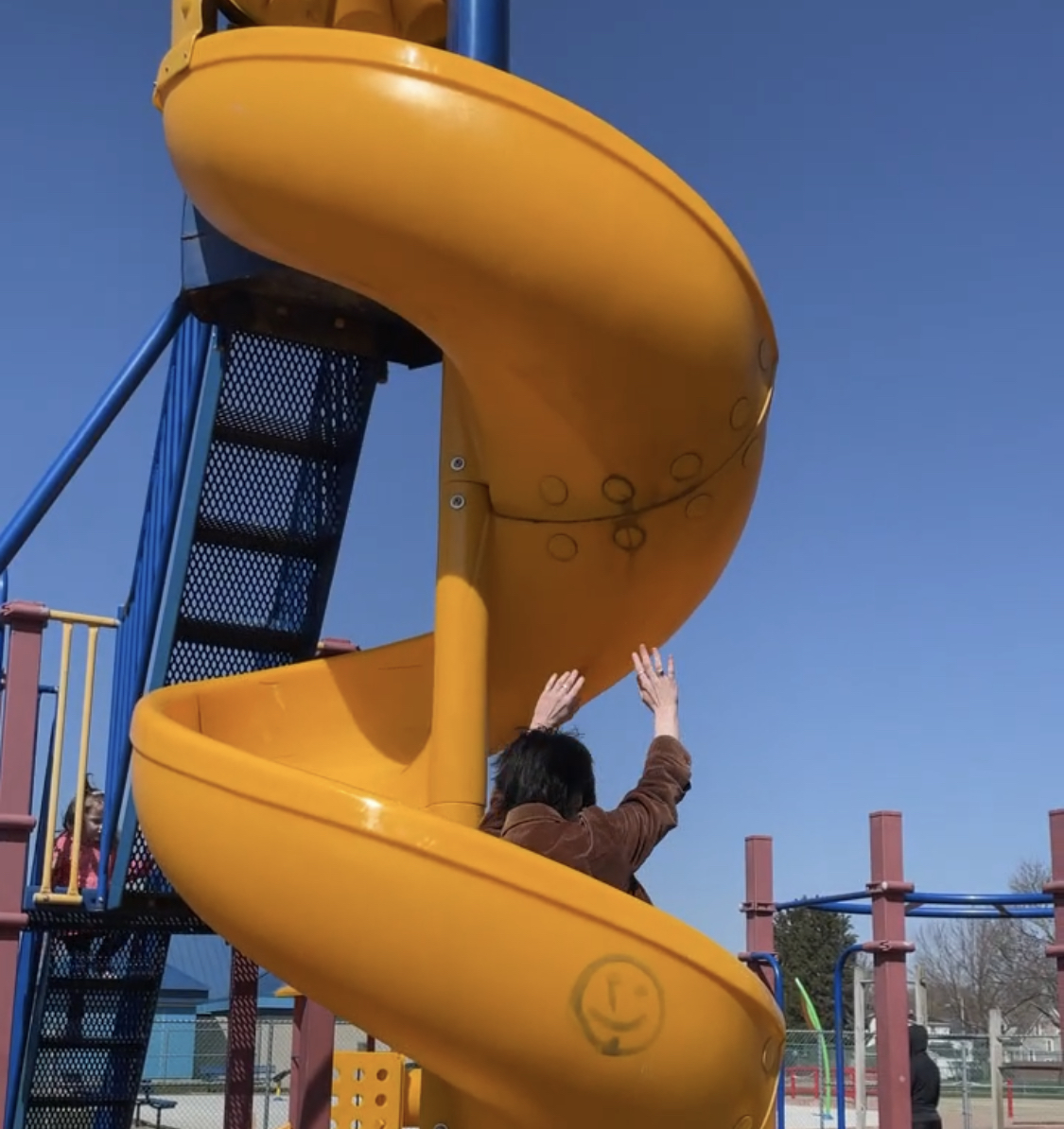
Prioritizing Play:
The Importance of Goofing Off, Giggling, and Having Fun.
Julia Morrison

The last time I saw my friends from high school, we spent hours catching up on each other’s lives, reminiscing on our adolescence, and laughing until we were too tired to speak. As we gathered our things and started saying our good nights, my friend, Sarah, said: “Right before I left, my mom said, ‘What are you girls going to do all night? Sit around and giggle?’”
And we giggled even more because that’s exactly what we had been doing. Part of what made her mother’s comment so funny was hearing the word “giggling” in the context of a bunch of mid-twenty-somethings. But it was exactly the right word. There’s such a distinct difference between laughing and giggling, and “laughing” just didn’t quite describe what we had been up to.
Giggling is uncontrollable, soft, and constant. Giggling, to me, implies a certain sense of intimacy and comfort. It’s just sillier than laughing. Laughter can be cruel and hurtful when in the wrong hands. That night with my friends and other, similar nights are some of my most cherished memories. The older I get, the more infinitely grateful I am for the time I spend giggling, goofing off, and being completely unproductive with the people I love.
Part of that is because evenings like this become rarer the older we get. We move away from our friends, we work ourselves to exhaustion, and we find ourselves on the hamster wheel of constant self-improvement. We spend our days at work, and when we leave work, we spend our free time tending to our errands and household responsibilities. In our precious leisure time, we meet friends for meals, coffees, beers, movies, and concerts. We come home and watch TV or scroll to distract us from our racing thoughts about tomorrow.
As children, we spent most of our time playing. And at a certain point, we stopped. Playing, like giggling, is distinctly childlike and a word rarely used in the context of adulthood.
Playing is all about fun and games, but it’s also a way for children to learn how to socialize, become resilient and well-adjusted, and experience fear and joy in safe, controlled environments. I recently watched a TEDx Talk by Dr. Peter Gray called “The Decline of Play,” which means I am now a highly qualified expert on this subject matter. In his talk, Dr. Gray explains how “animals with the most to learn play the most.” That is to say: complex social animals use play as a way to learn about their environments and their peers, and to develop the skills they need to survive.
He goes on to note that young, play-deprived animals struggle to adapt to their environments, and instead freeze in fear and react inappropriately to social stimuli. Not only is this extremely sad to think about (my mind conjures the image of a baby polar bear standing alone on a playground), it makes me wonder: What happens when adults don’t play enough?
What makes this challenging is how we define “playing” once we’re past the age of playgrounds, building blocks, and mandatory recess periods.
Shopping, going for a run, and meeting friends for coffee may feel like playing, but, is it? It seems impossible to find after-work activities for adults to engage in that don’t involve spending money or being “productive.” This New York Times article takes a deep dive into what does and what does not constitute play. The crux of it, as Dr. Jeff Harry puts it, is as follows: “A lot of us do everything hoping for a result. It’s always, ‘What am I getting out of this?’ Play has no result.”
This means, scientifically speaking, playing has to be silly, goofy, and with no ulterior motive of achieving some kind of result. No hope of improving at something, losing weight, or accomplishing some kind of goal other than having fun. These activities are harder to find than you’d think. As my dear friend and colleague, Beal St. George, wrote about in her piece on Third Spaces, it is increasingly harder to find spaces as a grown-up that don’t revolve around working or spending money. In addition to the lack of time we have for play, a lack of physical spaces to facilitate playtime makes it harder to play.
While most of our brain development is complete by the time we reach adulthood, it turns out there are still several benefits of play for adults. Playtime can help us relieve stress, improve our ability to work through interpersonal conflict, and keep our minds sharp. If I think about it too hard, I might then argue that play in itself has a benefit, so is it actually work? For the purpose of this essay, I am saying no. No, because these benefits are unintended, positive consequences, not the primary motivators for playing.
With very few designated spaces for sober, G-rated adult play, and so little time, where does one go? What does one do to fulfill their childlike sense of whimsy?
In the past few months, I’ve tried to incorporate playtime into my life more and more. It started as a bit (which made it easier, because there is nothing less ‘grown-up’ than sincerity), but once I realized how truly difficult it was to find time for myself to have fun and let loose, I realized how critical it is. I learned that even something as benign as picking up the guitar came with the crushing guilt that I hadn’t played in months or gotten “better.” Going outside to run around felt like a waste of time when I wasn’t pushing myself to run as far and fast as I possibly could. Lying down and listening to a record felt silly, especially when there were about 4 albums sent to me by friends that I promised I would listen to this week.
So much of how we move through the world as adult humans means being surrounded by constant stimulation, seriousness, productivity, and self-improvement. We’ve reached the point at which playing can induce stress, because shouldn’t we be journaling or meditating or taking pilates or being fabulous somewhere? Don’t we have groceries to buy and dates to go on and friends we promised we’d grab lunch with?
The important thing to remember about playing is that you can never be the best at playing. It is inherently imperfect and deeply personal. For some, playing might look like doing math problems and puzzles. For others, it might look like dancing in your living room or climbing a tree. Playing can start with small steps. Take your AirPods out on your next walk. Walk slowly and look at every house you pass. Pick up an old hobby or try something new without the pressure to improve. Play your instrument or struggle through another knitting pattern.
Be really bad at whatever you do because you have all the time in the world to be good at things, and such little precious time to turn your brain off and do something that makes you giggle.
